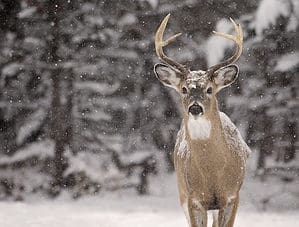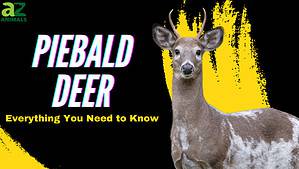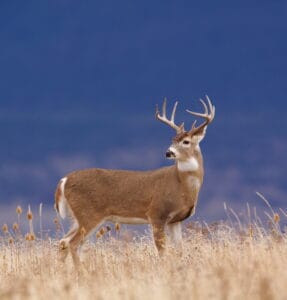Hunting for deer in South Carolina is pretty straightforward. You must purchase a hunting license, as well as whatever permits you need for the type of hunt you’re planning on.
However, there are several regulations you have to adhere to, as well as bag limits. With all these rules, there can be a lot of information to digest. Luckily, it is much easier if you go one step at a time.
In this article, that’s exactly what we’ll do: go through all the regulations, dates, and rules you need to know – one at a time.
Licenses, Tags, and Permits
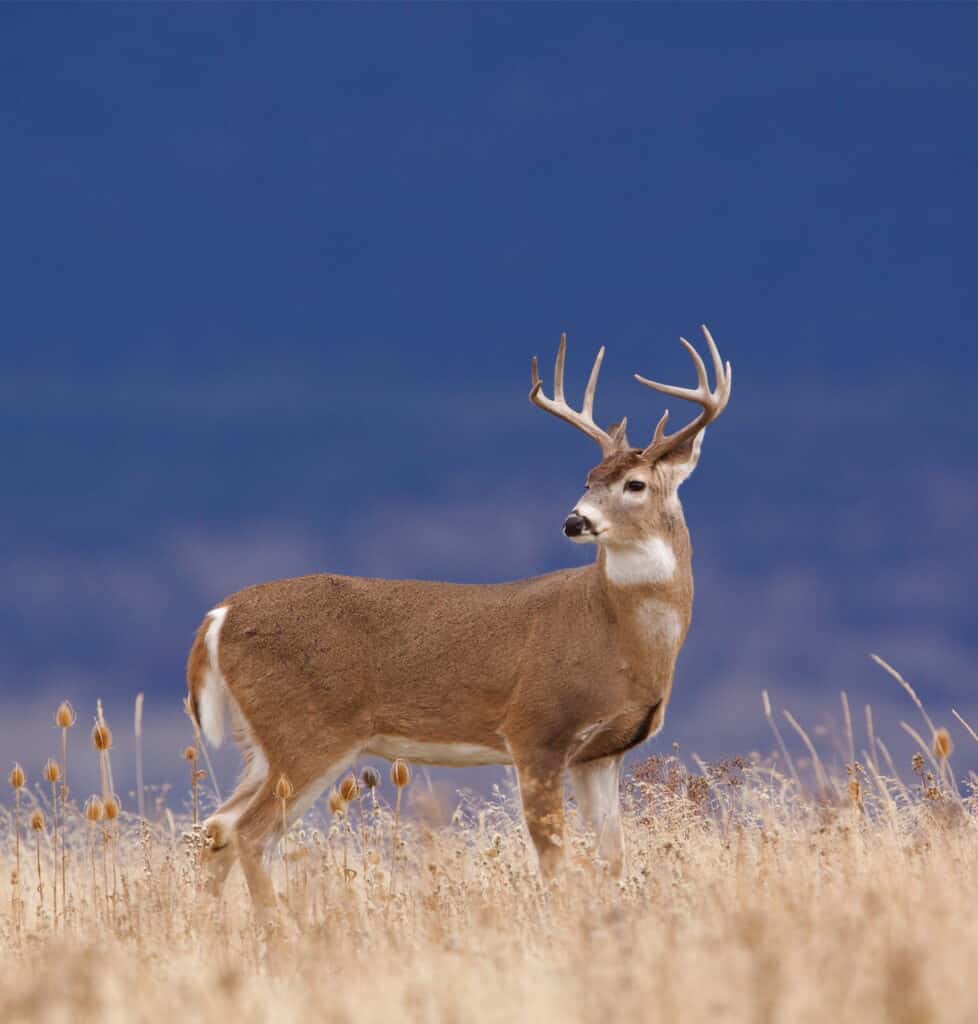
There are two main types of licenses in South Carolina.
©Tom Reichner/Shutterstock.com
Getting a license is not complicated in South Carolina. You will need some basic identifying information, such as your social security number and proof of your identity. There are two main types of licenses: resident and nonresident. Resident licenses are cheaper, so you should aim to purchase that type if you live in the state.
You can use your driver’s license as proof of residency. However, you can also use other items of proof, such as your car registration.
There are some exemptions to this resident identification, though. Military personnel based in the state are normally considered residents. However, military personnel who normally live in South Carolina but are currently based outside the state also count as residents.
Full-time students in South Carolina count as residents and can use a student ID as proof.
Most hunting licenses are valid for one year. However, there are some three-year options, too. Permits and tags are always valid for one year, no matter how long the license lasts.
Hunter Education Requirements
Every hunter in South Carolina is required to take a hunter education course. This course teaches basic firearm safety, as well as basic regulations for hunting. Everyone born after June 30, 1979, is required to successfully complete the course before hunting. On completion, you will be given a hunter education card. You must bring this card with you to purchase your license.
There are many two main types of classes available. The first is an in-person, instructor-led course. This class is completely free and runs for about eight hours. The class is offered as a single-day option and split over two days. There is a test at the end to pass.
This class is recommended for those over 12 who have good reading comprehension and previous firearm knowledge. Reading in the class is at a 6th-grade level. However, anyone can take the class. Only those over the age of 10 can take the final exam and “pass” the course.
There is also an online self-study option. This course costs money, as it is run by a third party. After taking the final test, you can instantly print out a temporary certificate, allowing you to get a license right away. You will receive a permanent certificate in two to three weeks.
Only those over 12 can take this course. Only certain courses are approved, such as Today’s Hunter Online course. Be sure you take an approved course only.
Apprentice Hunting License
For new hunters, you can skip the hunter education course for one year and apply for an Apprentice Hunting License. This license type allows you to hunt under the supervision of a mentor. This mentor must be at least 21 years of age and have a license. That individual must have also not committed a hunter violation at any point.
Both the hunter and mentor must stay close to each other – about the range of a normal conversation. The mentor must ensure that all hunting regulations are followed.
If the apprentice hunter takes the hunter education class during the season, then the license turns into a statewide hunting license. No mentorship would be required in this case.
Licenses Needed for Deer Hunting
For deer hunting, you’ll need a hunting license, a big game permit, and a deer tag. Any valid hunting license works, including an apprentice license. You’ll need a big game permit for hunting deer and any other big game. This permit must be purchased yearly.
You must purchase tags online or over the phone. Tags are mailed in late July. Therefore, we recommend purchasing tags before July each year.
If you order anything online, be sure to give at least 7-10 days for shipping.
General Regulations
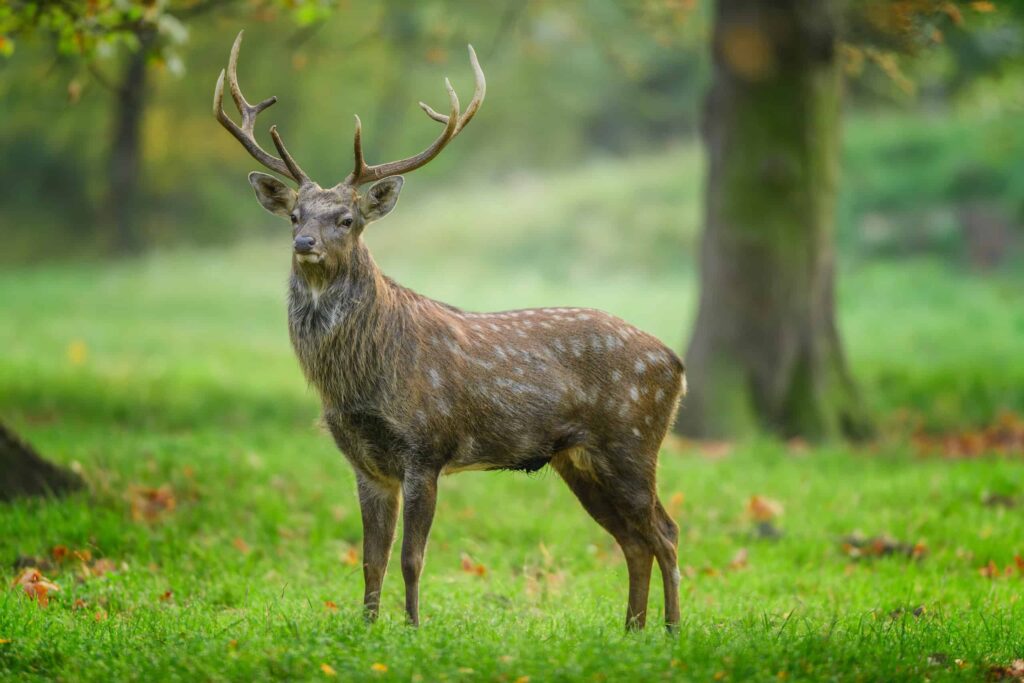
Hunting deer from the road is a very serious offense.
©miroslav chytil/Shutterstock.com
There are many statewide hunting regulations that affect deer hunting, as well as hunters of other species. You should adhere to these, too, even if they aren’t specific to deer.
Several deer seasons are classified as youth hunting days. During these periods, only those 17 and younger may hunt. However, those who haven’t completed the hunter education program must be accompanied by an adult that’s 21 years or older. Only youth may take game during this season.
License and tag requirements are waived for youth days that fall outside of the normal season.
There are also several free hunting days. During these periods, only individuals without a valid hunting license may hunt. Hunters may hunt on all lands where hunting is allowed, including private lands and WMAs. All regulations, bag limits, and other rules still apply.
Using artificial light to find or harass wildlife is unlawful. The only exception is on private land, where you may observe wildlife with a light before 11 pm (but not hunt with a light). This does not apply to anyone engaging in research or documentary filming.
Sunday hunting isn’t allowed in WMA. However, you may hunt on private land on Sundays.
Trespassing is always illegal, even if you are hunting. You must always ask for consent from the owner before traveling onto private property, even to retrieve a deer.
Hunting from public roads is also illegal unless the hunter has permission to hunt on land adjacent to the road. “Hunting” includes having a loaded weapon on your person. Weapons contained within closed compartments in a vehicle do not count. Hunting from roads is a very serious offense and can result in suspension of hunting privileges.
Hunting at night is not allowed. Night is defined as between one hour after sunset to one hour before sunrise the next day. There are some creatures that can be hunted at night, but deer do not fall into this category.
Deer-Specific Regulations
There are also several species-specific regulations that hunters need to abide by. For instance, pursuing deer with dogs isn’t allowed in Game Zones 1 and 2. However, it is allowed in other Game Zones. You may not shoot a deer off a water craft or harm a deer while it is in the water.
In certain cases, you may only take antlered deer or antlerless deer. An antlered deer is defined as a deer with antlers two or more inches above the hairline. Antlerless deer are not in this category. Usually, they cannot be killed unless you have a special permit.
Antlerless Deer Tags
Everyone receives two antlerless deer tags for free when you purchase a base set of deer tags. You may also purchase up to four more antlerless deer tags for a low price. However, not all of these antlerless deer tags are valid everywhere. Each area has a limit on the number you can use in that area.
Therefore, to use all these tags, you’ll probably have to travel around a little bit.
Deer Quota Programs
Some qualifying landowners may receive a deer quota after submitting an application. This program is best for those with larger properties, as the quota is based on the amount of land you own. The deer population density in your area and the size of the land you’re applying with are other factors.
Based on these factors, you’ll be able to hunt a specific number of antlerless deer on that land. You may also receive a quota of antlered bucks. The tags can only be utilized on certain dates, which vary depending on the area. The tags must also be used with the correct weapon type for the season you’re hunting in.
However, bag limits do not apply in this program. Instead, the limit is on the property – not the person.
CWD and Regulations on Deer Transporation
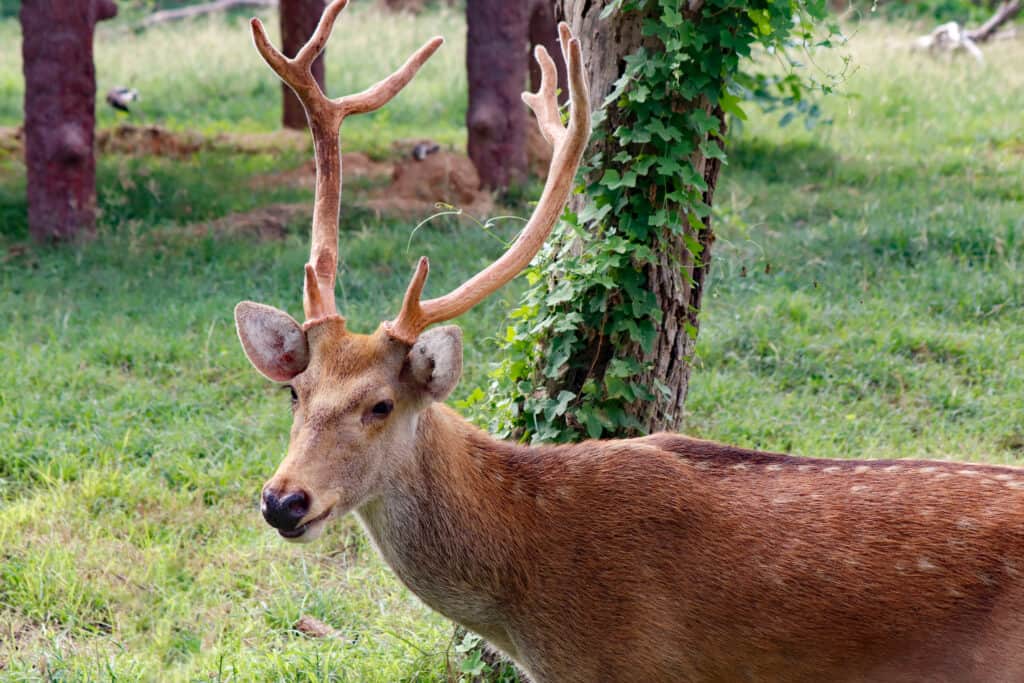
CWD has not been detected in South Carolina.
©Sunil lodhwal/Shutterstock.com
Chronic wasting disease is a very contagious and fatal disease that only affects members of the cervid family, including deer. This disease has been found in 30 different states, but currently isn’t in South Carolina. Therefore, South Carolina does not have as many CWD regulations as other states.
However, the state has limited the importation of deer from other states. It is illegal to transport a deer into the state unless it has already been processed. Parts of the nervous system, such as the spinal column, must be carefully removed.
CWD is caused by prions, which are mutated proteins. These proteins resist being broken down by the body in the usual way. Therefore, they build up. Eventually, this build-up damages the nervous system, causing “holes” in the animal’s brain. These proteins are concentrated in the nervous system and lymph nodes, but they are found throughout the deer’s body.
Symptoms usually don’t occur until the animal has been infected for months. Therefore, many infected deer look and act completely normal. For this reason, testing is the only way to tell if a deer is infected. Once symptoms occur, they usually include odd behaviors, a loss of fear, confused motor activities, and similar behaviors.
There is no live-animal test. Therefore, the state relies on testing performed on hunting deer to ensure that the disease doesn’t move into the state.
CWD is transmitted via direct contact between deer and through urine, saliva, and blood. Once it is in an area, it is very difficult to get rid of. The proteins can live in the soil for years, infecting any deer that comes into contact with it. Usually, transmission is highest among dense deer populations. Practices like baiting increase the deer concentration and the spread of the disease.
Luckily, CWD hasn’t been shown to infect people. Furthermore, there is a robust species barrier, making it difficult for this condition to ever infect people. However, there is always a chance that the proteins may mutate and cross the species barrier. Therefore, experts don’t recommend consuming meat from an infected animal.
Because CWD is passed through urine, urine-based deer lures are banned in the state. Urine-based products are not regulated or tested, and CWD has been confirmed in many captive cervid facilities. Therefore, there is a possibility that real urine products may contain CWD.
However, you can use artificial lures, as they cannot potentially contain these prions. Furthermore, the whole market seems to be moving towards synthetic products, anyway, as this ban on urine-based products is common throughout the United States.
The photo featured at the top of this post is © WildMedia/Shutterstock.com
Sources
- South Carolina Department of Natural Resources, Available here: https://www.dnr.sc.gov/cwd/index.html
- South Carolina Department of Natural Resources, Available here: https://www.dnr.sc.gov/hunting.html
Thank you for reading! Have some feedback for us? Contact the AZ Animals editorial team.



